Tag Archive for: decision making

How to Grapple with Personal Uncertainty During COVID-19
Blog
What Management Model Best Stems the Spread of COVID-19?
Blog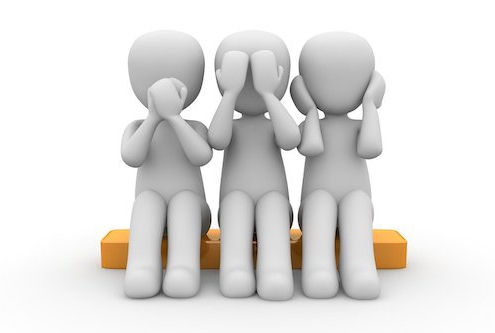
The Psychology of Ford’s Fiesta and Focus Cover-Up
Blog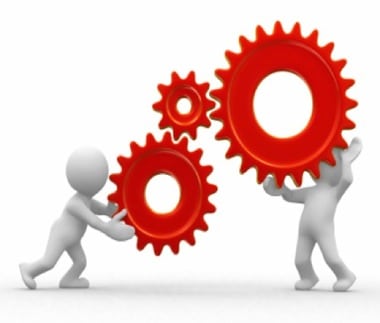
Varying Tasks to Increase Compliance
Blog A new study illustrates how providing variety in job-related tasks for workers contributes to rule adherence and stymies unethical decision making.
A new study illustrates how providing variety in job-related tasks for workers contributes to rule adherence and stymies unethical decision making.
The paper “Reducing Organizational Rule Breaking Through Task Variety: How Task Design Supports Deliberative Thinking,” is authored by Rellie Derfler-Rozin, ES collaborator Celia Moore and Bradley R. Staats and published in Organization Science. The authors discuss the positive implications of this research for designing roles and responsibilities in various organizational settings, and the beneficial outcomes for both workers and businesses.

Ethical Decision Making: Easy in Training, Harder in Reality
Blog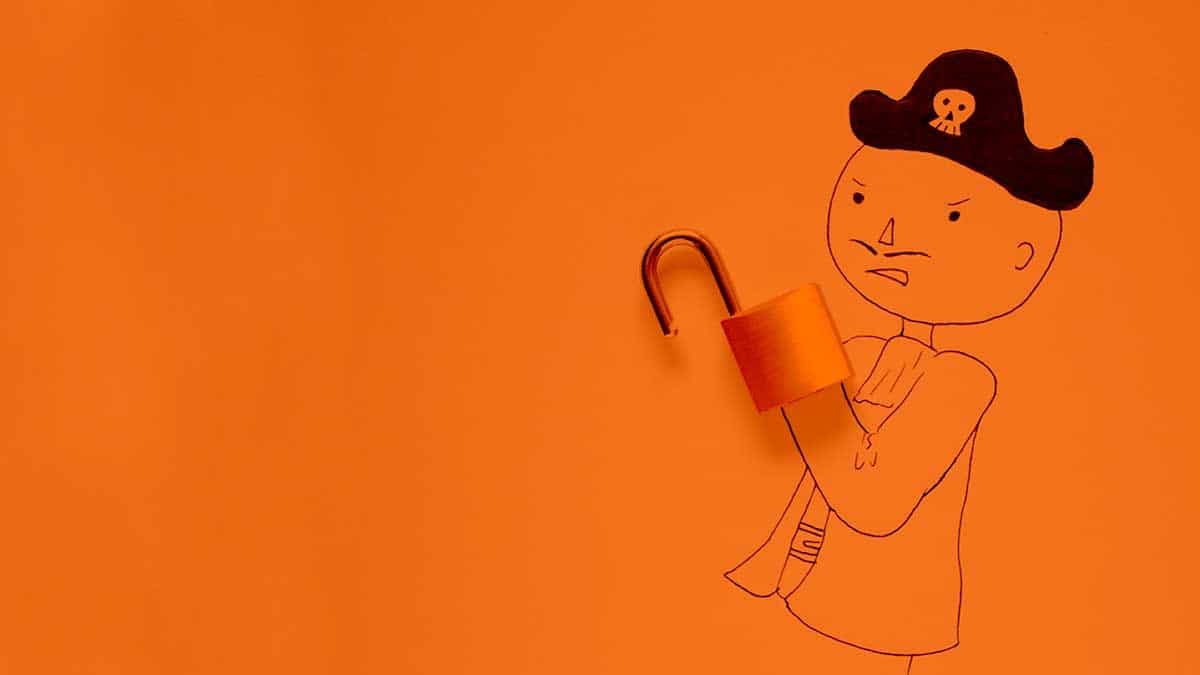 Over the course of a workday, people make innumerable decisions ranging in degrees of severity, from critical to mundane. Often times, choices are made in a vacuum and are considered for only as long as it takes until the next intellectual dilemma or distraction demands our attention. A recent piece by Eugene Soltes in Harvard Business Review explores the difficulty around ethical decision-making, while also exploring the gap between attempts to train or educate people on organizational ethics and the real-world pressures people face when face with an ethical dilemma (or even recognizing that they may be in an ethical quandary).
Over the course of a workday, people make innumerable decisions ranging in degrees of severity, from critical to mundane. Often times, choices are made in a vacuum and are considered for only as long as it takes until the next intellectual dilemma or distraction demands our attention. A recent piece by Eugene Soltes in Harvard Business Review explores the difficulty around ethical decision-making, while also exploring the gap between attempts to train or educate people on organizational ethics and the real-world pressures people face when face with an ethical dilemma (or even recognizing that they may be in an ethical quandary).
Soltes, an Associate Professor of Business Administration at Harvard Business School, points to a variety of executive misdoings by ostensibly smart and talented— not to mention prominent— leaders that illustrate that even those under scrutiny and fully aware of their responsibility for shareholder funds can act in self-serving ways that, in retrospect, they realize are obviously unethical. And, as Soltes writes, in hindsight the fact that these were adverse decisions are not lost on these individuals, but in the moment they failed to consider the impact or consequences.
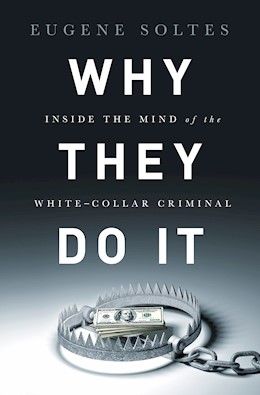
Never Black and White: Eugene Soltes Exposes the Gray
Blog White collar criminals typically conjure images of dark boardrooms, wealthy conspirators and syndicated, international crime rings. Yet, in a new book, Eugene Soltes shows white collar crime is less a cause of pernicious plots and more a product of a lack of focus, proximity and context.
White collar criminals typically conjure images of dark boardrooms, wealthy conspirators and syndicated, international crime rings. Yet, in a new book, Eugene Soltes shows white collar crime is less a cause of pernicious plots and more a product of a lack of focus, proximity and context.
What distinguishes Why They Do It from others on the subject is Soltes’ extensive use of almost 50 interviews with those convicted of white collar crimes- which he defines as individuals in high social standing who committed crimes while doing business. The main takeaway is that corporate leaders are more or less normal people, who are as susceptible to the same conflicts of interest and ability to rationalize decisions made in the moment as the rest of us. By virtue of their position, however, their decisions can do harm not only to themselves but also all with whom they do business.

Featured Collaborator for December: Ann Tenbrunsel
BlogInterview with Ann Tenbrunsel, the David E. Gallo Professor of Business Ethics at the Mendoza School of Business at the University of Notre Dame, and co-author of Blindspots
What are your main areas of research?
My work has focused on why individuals behave in ways that deviate from their values and are not aware that they are doing so. Within that domain, I have focused on how the situation leads to "ethical fading" in which people do not realize they are in fact presented with an ethical decision. If you don't realize you are faced with an ethical dilemma, then your ethical values and principles wont be part of the decision process. I have examined individual level factors-- temptation, forecasting errors, construal level, moral self-image and power-- as well as organizational level factors-- business framing, sanctions,perceived retaliation, organizational cultures of justice and respect, formal and informal communications-- that may influence unethical behavior.
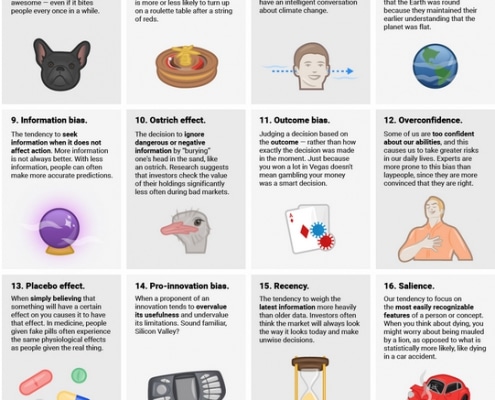
Biases and Decision Making
Blog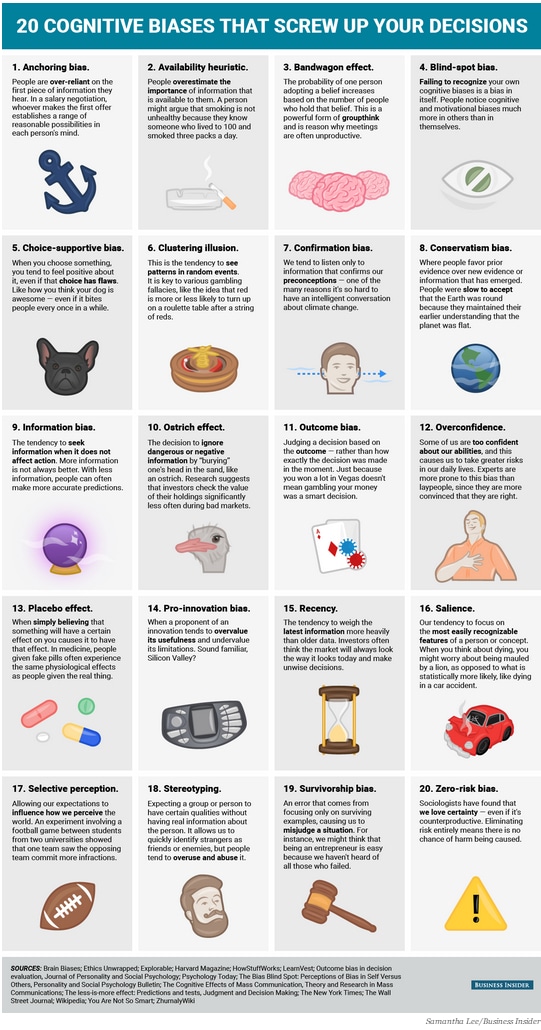 From the things we say to the actions we take each day, our world- and that of business- is comprised of thousands of decisions, both big and small. How we come to make those decisions is the result of intuition and analysis and, in most cases, influenced by biases that we may or may not be aware of.
From the things we say to the actions we take each day, our world- and that of business- is comprised of thousands of decisions, both big and small. How we come to make those decisions is the result of intuition and analysis and, in most cases, influenced by biases that we may or may not be aware of.
We know about blind spots in decision making, mostly because of the work of ES collaborators Max Bazerman and Ann Tenbrunsel. A recent graph published in Business Insider: Australia, and included below, depicts additional biases that all would be wise to learn and attempt to obviate when analyzing ideas and programs.
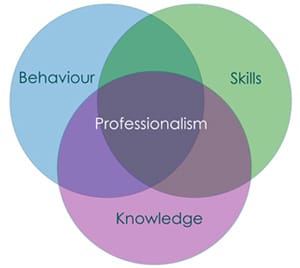
Professionalism and Ethics: A missed connection?
Blog What does professionalism mean to you? Often, people who identify as a professional think of themselves not only as knowledgeable in their discipline, but also rational, objective and serving a higher purpose (e.g., the client’s needs). These are laudable goals, but new research shows that these characteristics could actually lead to people making self-interested, and ultimately unethical or damaging, decisions.
What does professionalism mean to you? Often, people who identify as a professional think of themselves not only as knowledgeable in their discipline, but also rational, objective and serving a higher purpose (e.g., the client’s needs). These are laudable goals, but new research shows that these characteristics could actually lead to people making self-interested, and ultimately unethical or damaging, decisions.
In a paper on Professionalism and Moral Behavior, Maryam Kouchaki of the Kellogg School of Management at Northwestern University, tests the hypothesis that an emphasis on one's professional identity has a greater likelihood of an individual engaging in unethical behavior. This is an important inquiry in light of ethical failures in companies where lawyers and accountants often act as “gatekeepers” on ethics and compliance issues vis a vis corporate practices. Based on evidence from her lab studies and employee surveys, Kouchaki concludes that priming professionalism may actually lead to increased misbehavior.
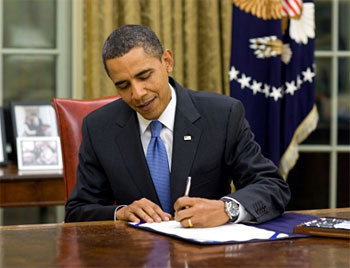
An Executive Order Promoting Behavioral Science
Blog As we have long said, behavioral sciences are the key to unlocking better decision making, from study halls to the halls of power. This week, the White House echoed our view via an Executive Order outlining that behavioral insights be used to better serve the American people. What began as a nudge, is now a full-on push.
As we have long said, behavioral sciences are the key to unlocking better decision making, from study halls to the halls of power. This week, the White House echoed our view via an Executive Order outlining that behavioral insights be used to better serve the American people. What began as a nudge, is now a full-on push.
Ethical Systems praises this initiative as a major step towards not only making behavioral science more widespread but also in advancing the incorporation of ethical system design in business. When businesses adopt these systems, research shows their employees are happier, more productive and, as a result, the business is more profitable.
